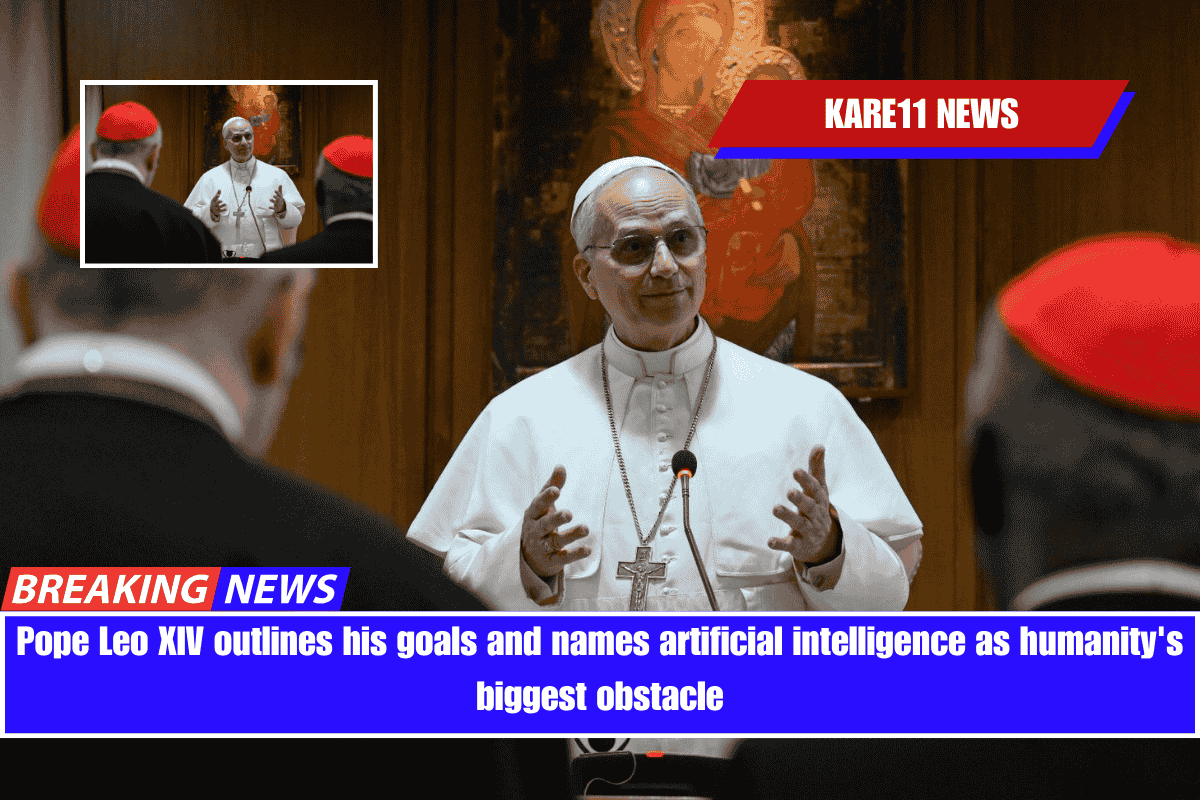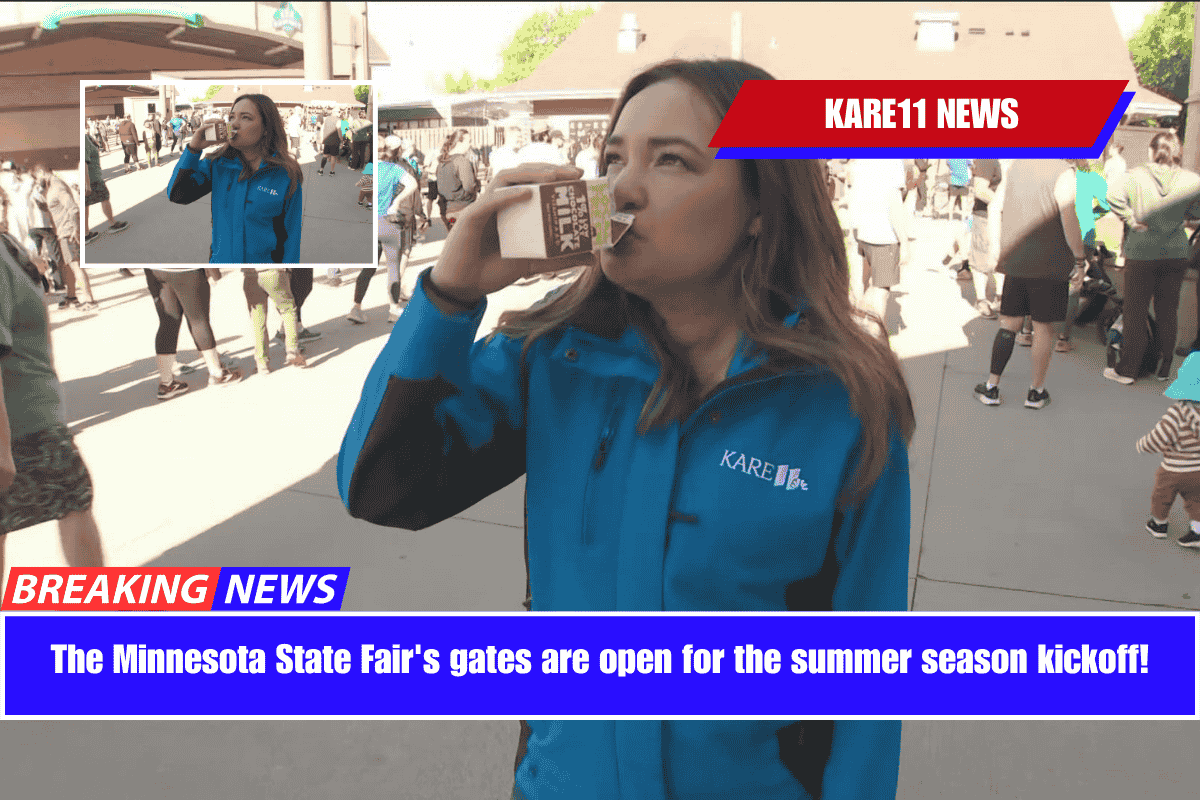ROME, ITALY— Pope Leo XIV laid out his papacy’s vision on Saturday, identifying artificial intelligence as one of humanity’s most pressing issues and promising to maintain some of Pope Francis’ core priorities.
But, in a sign that he was claiming the papacy, Leo made his first public appearance since his election, visiting a sanctuary south of Rome dedicated to the Madonna and significant to his Augustinian order and namesake, Pope Leo XIII.
Genazzano residents gathered in the square outside the main church, which houses the Madre del Buon Consiglio (Mother of Good Counsel) sanctuary, as Leo arrived and greeted them. The sanctuary, which is managed by Augustinian friars, has been a pilgrimage site since the 15th century, and the previous Pope Leo elevated it to a minor basilica and expanded the adjacent convent in the early twentieth century.
After praying in the church, Leo greeted the townspeople and explained that having the Madonna among them was both a gift and a responsibility. He gave a blessing before getting back into the passenger seat of the black Volkswagen. On the way back to the Vatican, he stopped to pray at Francis’ tomb at St. Mary Major Basilica.
The after-lunch outing occurred after Leo presided over his first formal audience with the cardinals who elected him Pope. In it, Leo cited Francis and the Argentine pope’s own 2013 mission statement several times, emphasizing the Catholic Church’s commitment to becoming more inclusive and attentive to the faithful, as well as a church that looks out for the “least and rejected.”
Leo, the first American pope, told the cardinals that he fully supported the Second Vatican Council’s reforms, which modernized the church in the 1960s. He identified artificial intelligence as one of humanity’s most pressing issues, claiming that it poses challenges to defending human dignity, justice, and labor.
Some signs about the future emerge
Meanwhile, the Vatican offered its own hints about the Leo pontificate. It was revealed on Saturday that Leo would keep his motto and coat of arms from his time as bishop of Chiclayo, Peru, which emphasize church unity.
St. Augustine pronounced the motto, “In Illo uno unum,” in a sermon to explain that “although we Christians are many, in the one Christ we are one.” The Augustinian order’s emblem is a pierced flaming heart with a book representing the Scriptures.
The Vatican also revealed information about Leo’s pectoral cross, which was given to him by the Augustinian order when he was elevated to cardinal in 2023. It contains the relics of St. Augustine and his mother, St. Monica, who was instrumental in his conversion to Christianity.
St. Augustine of Hippo is considered one of early Christianity’s theological and devotional giants. The Augustinian order, founded in the thirteenth century as a community of “mendicant” friars, is committed to poverty, service, and evangelization.
Identifying with Pope Francis
Leo referred to AI when explaining the choice of his name. His namesake, Pope Leo XIII, reigned from 1878 to 1903 and established the basis for modern Catholic social thought. He did so most famously with his 1891 encyclical Rerum Novarum, which addressed workers’ rights and capitalism at the start of the industrial revolution. The late pope criticized both laissez-faire capitalism and state-centric socialism, resulting in a distinctively Catholic style of economic teaching.
In his remarks Saturday, Leo stated that he identified with his predecessor.
“In our own day, the church offers everyone the treasury of its social teaching in response to another industrial revolution and to developments in the field of artificial intelligence that pose new challenges for the defense of human dignity, justice and labor,” said Pope Francis.
Toward the end of his pontificate, Francis became more vocal about AI’s threats to humanity and advocated for an international treaty to regulate it.
In many ways, Francis saw Chicago-born Augustinian missionary Robert Prevost as an heir apparent: he moved him to take over a small Peruvian diocese in 2014, where Prevost later became bishop and head of the Peruvian bishops conference, and then summoned him to Rome in 2023 to take over one of the most important Vatican offices vetting bishop nominations.
In the speech, delivered in Italian in the Vatican’s synod hall rather than the Apostolic Palace, Leo made several references to Francis and the mourning over his death. He cited Francis’ 2013 mission statement, “The Joy of the Gospel,” as part of his own marching orders.
He cited Francis’ emphasis on the church’s missionary nature and the need to increase collegiality among its leaders. He emphasized the importance of listening to what the faithful say, “especially in its most authentic and inclusive forms, especially popular piety.”
Again citing Francis’ 2013 mission statement, Leo emphasized the importance of the church expressing “loving care for the least and rejected” and engaging in courageous dialogue with the contemporary world.
A quick conclave
Leo received a standing ovation as he read from his prepared text, occasionally looking up. Even when he first appeared in front of the world on Thursday night, Leo read from a prepared, handwritten text in Italian that he must have drafted either before or shortly after his historic election. In the few Spanish words he pronounced, he appeared to be most at ease speaking spontaneously.
Prevost was elected the 267th pontiff on Thursday on the fourth ballot of the conclave, an unusually quick result given that this was the largest and most geographically diverse conclave in history, and not all cardinals knew each other before arriving in Rome.
Madagascar Cardinal Désiré Tsarahazana told reporters on Saturday that on the final ballot, Prevost received “more” than 100 of the 133 votes. That suggests an extraordinary margin, far exceeding the two-thirds, or 89 votes, required to be elected.
A comment from a contender
Cardinal Pietro Parolin, the Vatican secretary of state and one of the leading contenders for pope, expressed his congratulations in a letter published on Saturday in his hometown newspaper, Il Giornale di Vicenza.
Parolin praised Leo’s understanding of contemporary issues, recalling his first words from the loggia about the need for a “disarmed and disarming peace.” Parolin said he appreciated Prevost’s leadership in Chiclayo, saying he assisted in dealing with a particularly difficult problem — with no details — and grew to appreciate his governance more closely at the Vatican, where he handled the bishops’ offices.
Parolin praised Leo’s understanding of people and situations, including his “calmness in argumentation, balance in proposing solutions, respect, care, and love for everyone.”
The Associated Press’s religion coverage is supported by a collaboration with The Conversation US, which receives funding from Lilly Endowment, Inc. The AP is solely responsible for this content.


















Leave a Reply